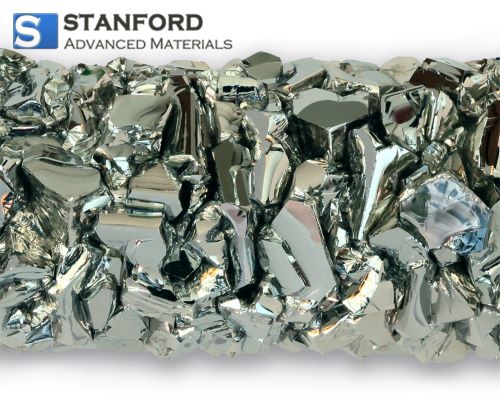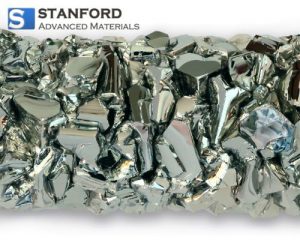
Hafnium is a silvery-white metal that is chemically similar to zirconium. It is a corrosion-resistant metal with a high melting point, making it useful in a variety of applications. One form of hafnium that is becoming increasingly popular is the hafnium crystal bar. In this article, we will briefly introduce the features and applications of hafnium crystal bars. Hope that you can have a better comprehension of hafnium products.
A hafnium crystal bar is a long, thin piece of hafnium metal that has been grown as a single crystal. This is achieved using a process called the Czochralski method, which involves melting the hafnium in a crucible and then slowly pulling a seed crystal through the molten metal. As the crystal is pulled, it solidifies and grows into a long, thin bar.

Hafnium Crystal Bars
The resulting crystal bar is extremely pure, with few impurities, which makes it ideal for use in a wide range of applications. The crystal structure of the hafnium bar also makes it strong and resistant to deformation, allowing it to be used in high-stress environments.
Related reading: 7 Interesting Facts About Hafnium
Hafnium crystal bars stand out for the following characteristics.
–Exceptional Thermal Performance: Hafnium (Hf, 72) is located in group 4, period 6 of the periodic table. This silvery, shiny, ductile metal has a melting point of 2220°C and a boiling point of 5200°C. Additionally, it comes with a great thermal conductivity of 22 W/(m·K) and a low thermal expansion coefficient of 5.9 µm/(m·K). All these features contribute to its remarkable thermal performance.
–High Nuclear Absorption Ability: Hafnium crystal bars are notable for their capability to capture neutrons. These products have a large thermal neutron capture cross-section and are commonly applied to the nuclear industries consequently.
–Impressive Corrosion Resistance: Hafnium is relatively stable in the air because of a protective layer of oxide or nitride formed in the air. Also, hafnium usually does not react with acids at room temperature. This metal is highly resistant to concentrated alkalis as well.
Hafnium has many more unique mechanical and chemical properties. You can check the table below for more information.
Table 1. Hafnium Crystal Bar Properties
| Properties | Metric |
| Density | 13.31 g/cm3 |
| Melting Point | 2220°C |
| Boiling Point | 5200°C |
| Thermal Conductivity | 22 W/(m·K) |
| Thermal Expansion Coefficient | 5.9 µm/(m·K) |
| Tensile Strength | 485 MPa |
| Yield Strength | 125 MPa |
Hafnium crystal bars have numerous applications across many industries. One of the primary uses of hafnium is in nuclear reactors, where it is used as a control rod material due to its high neutron absorption capacity. Hafnium crystal bars can also be used in other nuclear applications, such as radiation detectors and shielding materials. Nearly half of the hafnium produced every year is consumed by the nuclear industry.
Hafnium crystal bars are the best raw materials for high-purity hafnium products. You can employ them to manufacture quality hafnium wire and hafnium sputtering targets.
Hafnium crystal bars are also employed in the production of superalloys, which are high-strength, high-temperature materials used in applications such as gas turbines, chemical processing plants, and industrial furnaces. You can find hafnium crystal bars alloyed with iron, titanium, niobium, and other metals.
Another important application of hafnium is in the aerospace industry, where it is used to make high-temperature alloys for gas turbine engines. Its ability to withstand high temperatures and its excellent mechanical properties make it an ideal choice for jet engines and other aerospace applications.
In addition to these applications, hafnium crystal bars are found in other areas such as the production of plasma cutting tips, welding electrodes, and in the preparation of certain types of electrical contacts.
Thanks to their heat resistance, corrosion resistance, and great nuclear neutron absorption capability, hafnium crystal bars are applied to a wide range of industries. With the increasing demand for high-strength, high-temperature materials, the use of hafnium crystal bars is likely to continue to grow in the coming years.
Advanced Refractory Metals (ARM) provides hafnium products of different sizes and shapes. You can get hafnium wires and hafnium crystal bars on our website. Send us an inquiry if you are interested.
Copyright © 1994-2024 Advanced Refractory Metals owned by Oceania International LLC, All Rights Reserved.